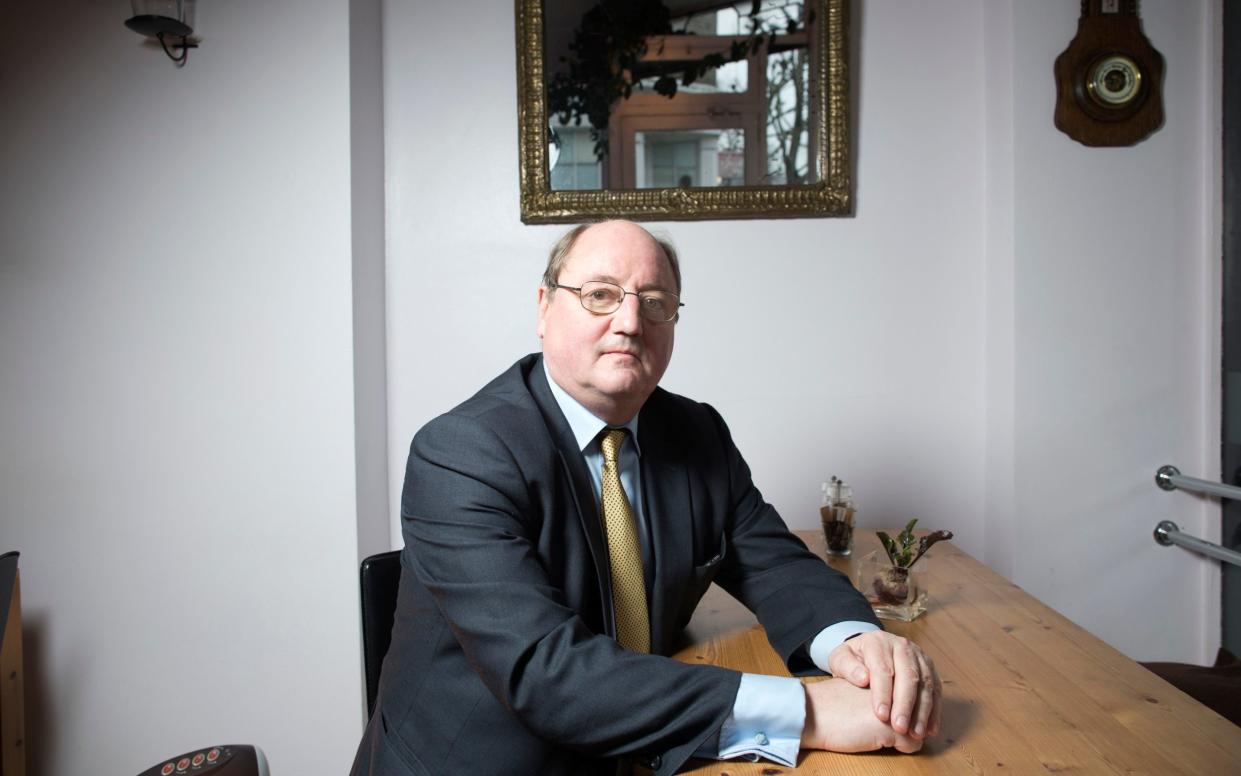Lord Monson fears police officer suspects in son's Kenya murder will flee before verdict as trial resumes

Their quest to bring their son’s killers to justice has dragged on for more than seven years, blocked at almost every turn by incompetence, cover-up and the grindingly slow nature of Kenya’s legal system.
On Tuesday, the parents of Alexander Monson, son and heir to the 12th Baron Monson, mark another exhausting milestone in that quest as the trial of four Kenyan policemen accused of beating him to death resumes in a sweltering Mombasa courtroom. It is the first time the court is sitting for nearly three months.
It was only through sheer doggedness that the Monson family managed to get this far. Yet, even now, with the end ostensibly in sight, Lord Monson fears that, whatever verdict the court reaches, the men accused of killing his son could spend the rest of their lives at liberty.
When the trial began, back in January, the presiding judge ruled that the four defendants — Naftali Chege, Charles Munyiri, Baraka Bulima and John Pamba — should be set free on bail. They have denied the charges.
Following reforms to Kenya’s penal code, bail is granted more often than not, even for those charged with a murder - theoretically a capital offence although no-one has been hanged for decades.
Not only is Lord Monson aghast that his son’s alleged killers remain free men, he also fears that there is little to stop the four defendants from slipping away before the verdicts are read.
“Logic dictates that if you fear you are going to spend the rest of your life in jail if you turn up to face the verdict then you don’t turn up to face the verdict,” he told The Telegraph.
“I would think that if they have the opportunity to avoid jail, they’ll take it. I mean, what person wouldn’t?”

Lord Monson’s fears do not seem wholly unwarranted. Defendants frequently abscond, legal experts say, not least because Kenya has no system of electronic tags to monitor their movements.
And although the defendants are required to report regularly to a police station, as officers themselves they could well find colleagues willing to help them escape.
Alexander Monson’s death was hardly an isolated case, after all. Extrajudicial killings by the police are common. Few of those who carry them out are ever brought to justice, in part, human rights activists say, because police officers have become so adept at covering up for each other.
Three of the four accused are still serving officers. Hilary Martin, Alexander Monson’s mother and Lord Monson’s ex-wife, says the family has not even been told if they have been suspended.
“If they are actually still in the service then that’s an outrage,” she said.
Since the day she watched her 28-year-old son, still handcuffed to a hospital bed, lose consciousness and die in May 2012, the family has had to deal, until recently, with relentless obfuscation by the police and Kenya’s authorities.
Officers at the police station where Alexander Monson was held following his arrest on suspicion of smoking a joint of cannabis outside a nightclub initially insisted that he had died of a drugs overdose.

Kenya’s police watchdog, formerly funded by Britain and modelled on the Independent Police Complaints Commission, initially sided with the officers.
Despite two government post-mortem reports reporting blunt-force trauma injuries across Alexander Monson’s body, the watchdog initially concluded that he had died from a fall. Bruises to his groin were explained away as having been caused “by vigorous oral sex”.
In June last year, the family won an unexpected victory as the magistrate presiding over the inquest ruled that Alexander Monson had been killed in custody and recommended murder charges against the four officers who held him.
Yet for 10 months the trial has dragged on, suffering frequent postponements for often inconsequential reasons, causing further alarm for the family.
With the prosecution yet to complete its case, and the trial only due to sit for three days this week before being suspended again, a verdict is not likely for months.
“In no other country in the world could a murder trial be taking place which takes years when it should have taken weeks,” Lord Monson said.
Each delay adds to the agony the family has suffered, Mrs Martin added.
“One can never get over the death of a child but you can get through it — but not if obstacles are constantly put in your way,” she said. “It is horrific. Instead of being able to heal the wound, it is constantly being re-opened.”
It is not just the family that is worried. Kenyan human rights campaigners say that a successful conclusion to the Monson case would serve as an important precedent in ending security service impunity and extra-judicial killings.
That impunity was on display in Mombasa over the weekend, when soldiers deployed on the city’s streets to protect politicians attending a national celebration made sport of beating up and abusing passers-by.
Young couples were forced to lie face-down in open sewers and drink faecally contaminated water. Others were made to strip naked and run through phalanxes of jeering soldiers, many of them masked, who beat them with the butts of their rifles.

